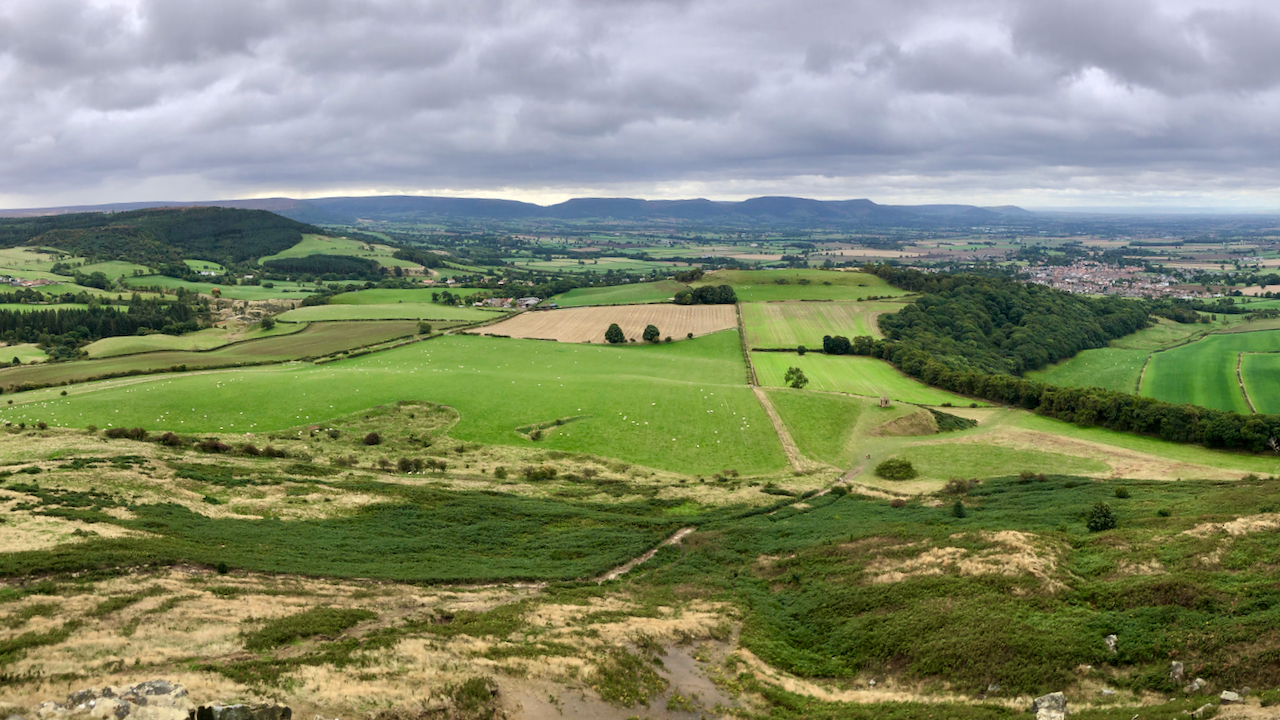Wednesday, the 26th of September, 1917. William Arthur Trembath opens his eyes and blinks as they adjust to the hazy morning sun. It’s silent yet he is vaguely aware all around him is a frenzy of activity. The Battalion is consolidating their newly gained positions, connecting and deepening shell holes to form new trenches.
He recalls the long two hour wait in darkness before the whistle went when the German positions were under constant bombardment. Then the Leicesters attacked, and another wait, an hour and an half this time, while they gained their first objective without much opposition.
Then it was out turn, the Lincolnshires, as we walked through the clouds of dust thrown up after the several days of fine weather had dried up the ground, a perfect smoke screen for us. We met with little resistance apart from some machine gun and rifle fire. Fifty or so Germans in a block-house had surrendered. That was my proudest moment since that attack on the Hindenberg Line back in April. Has it really only been 9 months since I signed up for the 2/5th Battalion of the Lincolnshire Regiment.
William opens his eyes again. A vision of his dear Ada etched in the memory. A rushed marriage before he had left Cleveland. He thought of his Ma, fussying over him in that so familiar house in Monkabeque Road1Romany Road. before he began the walk up Hall Fields to the Roseberry Ironstone Mine.
He thought of his Pa, and his Grandpa, both named, William Arthur Trembath. Grandpa was a tin miner from Cornwall, who when the work ran out down then came to Skinningrove where his father was born. Grandpa had returned to Cornwall. He knew the family had joined him when William was just 4 years old but he can’t remember much when from that age. Within a few years the family was back in Cleveland, in Great Ayton where Pa working as a plate-layer in the ironstone mines.
William had attended the British School in the village, his brothers and sisters following him: Thomas, he would be 18 now, Hannah 17, Stephen 14, John 10 Lilia, 7, and young Richard 4 years old. He thought then of Jane who was born in 1905, Harold 1915, and Oscar 1917, whom he had never seen, All three died when they were mere babes.
After school he followed his Pa into the mines, joining him sometime after 5 in the morning to make the long trudge up Hall Fields past Aireyholme Farm to the Roseberry Mine2There is an assumption here as William is not recorded as a fatality from Monument Mine.. His father would be reluctant and his ma often had to cajole him into leaving the house. She feared that he could be injured, or worse, but if he did not leave there would be no money at the end of the week. So William and his pa joined the trail of other miners dolefully plodding up to the mine, each carrying their bait of sandwiches wrapped in newspaper and a couple of bottles of cold un-milked tea.
Come 1914 and the declaration of war. William was keen to enlist, to do his duty, perhaps to escape the tedium of the mine, but he was only 16 and too young. Two years later, when conscription arrived, he may have hesitated as being an ironstone miner he was a scheduled occupation, but later that year, or was it early 1917, he joined the 2/5th Battalion Lincolnshire Regiment as Private 241802. By February 1917, with only the briefest of training, William found himself stationed on the front line south of the Somme, near Estrees.
The Battle of Polygon Wood took place from 26 September to 3 October 1917, during the second phase of the Third Battle of Ypres3Wikipedia Contributors. 2022. ‘Battle of Polygon Wood’, Wikipedia (Wikimedia Foundation) <https://en.wikipedia.org/wiki/Battle_of_Polygon_Wood> [accessed 26 September 2022].
On that first day, “the men of the 2/5th Lincolnshires had behaved with the greatest gallantry throughout“. 16 men were killed, including Private William Trembath. A further 209 were wounded and 74 missing, presumed dead. William was 20 years old and left Ada a widow. They had been married for less than a year, and most of that time had been spent apart.
William is remembered on the Great Ayton war memorial and on the Tyne Cot Memorial, five miles north east of Ypres.
Source: Research carried out by the Great Ayton History Society.
- 1Romany Road.
- 2There is an assumption here as William is not recorded as a fatality from Monument Mine.
- 3Wikipedia Contributors. 2022. ‘Battle of Polygon Wood’, Wikipedia (Wikimedia Foundation) <https://en.wikipedia.org/wiki/Battle_of_Polygon_Wood> [accessed 26 September 2022]

Leave a Reply